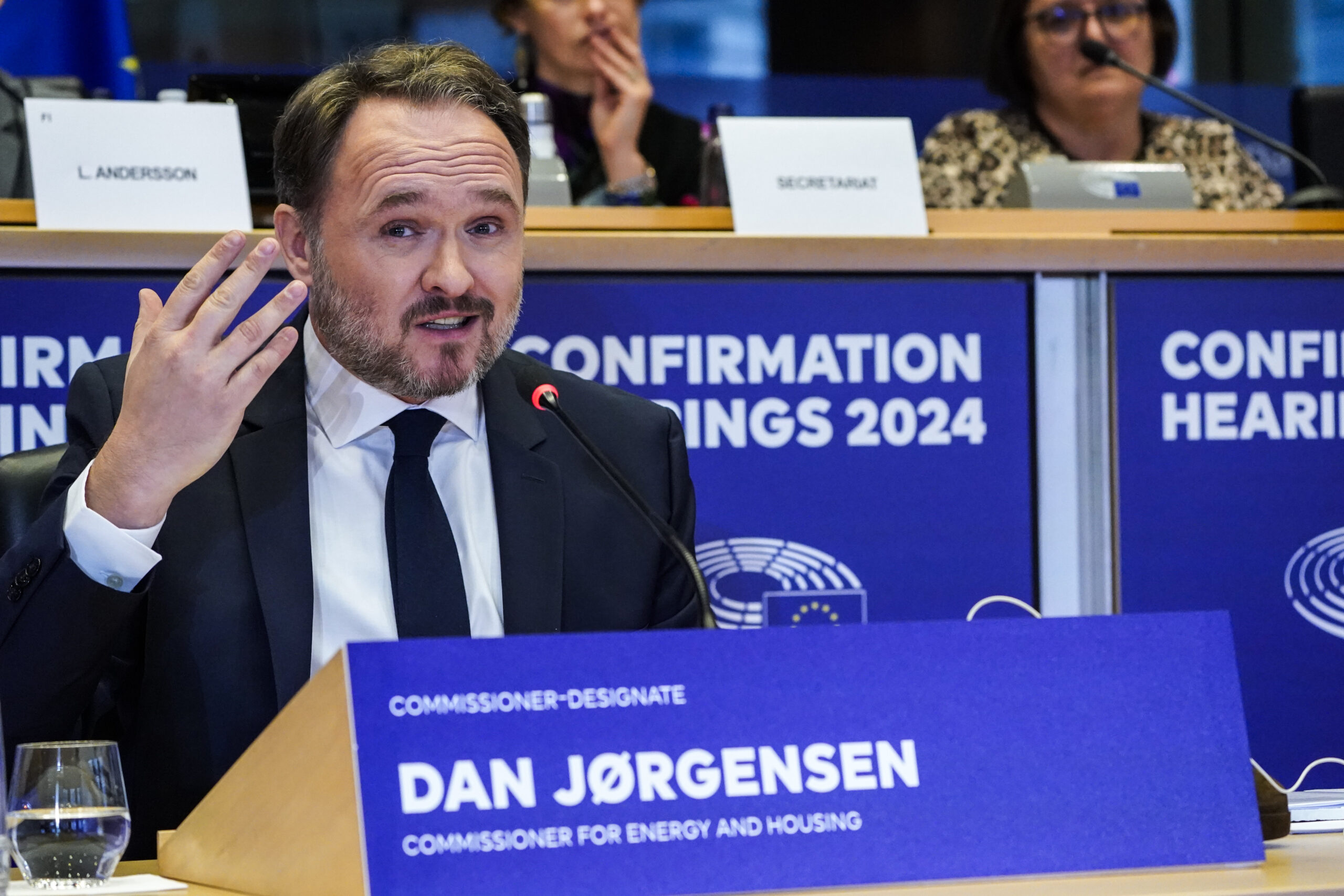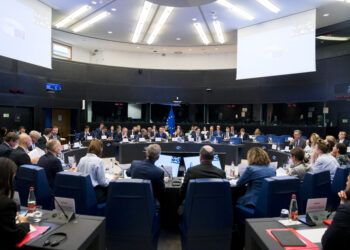Brussels – On the second day of the parliamentary hearings of the EU commissioners-designate comes the first headache for the incoming executive: Sweden’s Jessika Roswall, responsible for Environment, Water Resilience, and Circular Economy, did not convince MEPs on the Environment (ENVI) committee of the European Parliament who took more time before deciding. All others–nine out of ten–proceeded expeditiously toward a final vote to the entire von der Leyen cabinet. With the compact endorsement of the majority pro-European and conservative ECR, which, after rejecting the leader in July, is backing the appointments of its commissioners.
Yesterday (Nov. 5) began with hearings of the Irish liberal Michael McGrath, Commissioner-designate for Democracy, Justice, and the Rule of Law, and the Popular Bulgarian Ekaterina Zaharieva, candidate for Research and Innovation. They were both endorsed by two-thirds of the coordinators of the political groups of the relevant committees. More complicated was the rest of the day, when they appeared before the relevant parliamentary committees — in addition to Roswall — the popular Croatian Dubravka Šuica, who was given the new portfolio for the Mediterranean, the Danish socialist Dan Jørgensen, designated to Energy and Housing, and the Austrian Magnus Brunner, responsible for Home Affairs and Migration.
Šuica, the current vice president of the European Commission, received the endorsement of all groups except the European Left and the sovereignists of Patriots for Europe. As evidence that the assignment on the Mediterranean established by von der Leyen still has fuzzy boundaries, during the hearing, the commissioner-designate allowed herself a foray into an area that is hardly within her purview: “We cannot suspend the Association Agreement with Israel for the time being because it is the only basis on which we can continue to cooperate with Israel, and without it, there is no two-state solution,” she said.

It was then time for the three heaviest portfolios of the day. Jørgensen made great efforts, in particular on nuclear energy, even though he has never been a proponent of it in Copenhagen: “It is and always will be part of the energy mix and part of the solution for decarbonization,” he said, adding that “we cannot reach our targets in Europe without nuclear power.” The Danish Social Democrat said he was “in favor of the idea of having a new target for renewables” because “we will not succeed with 90 percent” of emissions reductions by 2040 “without massive deployment of renewables.” On the green homes directive, which is particularly unpopular in Italy, Jørgensen ruled out second thoughts but stressed that renovation of residential buildings should not burden citizens. “Already today, more than 100 billion euros have been provided to this specific effort, and I do not exclude that more can be allocated in this direction,” he said.
The former Danish minister received broad support from a majority of the coordinators of the European Parliament’s Energy and Industry (ITRE) and Employment and Social Affairs (EMPL) committees. Opposing him were only the Patriots and the coordinator of the Left in ITRE. The far-right group, Europe of Sovereign Nations, did not attend the meeting on the sidelines of the hearing.

Who could have found himself in the hot seat—and managed to avoid it—was the popular Magnus Brunner, the Austrian finance minister chosen by von der Leyen to take on the delicate role of Commissioner for Home Affairs and Migration. Towards a commissioner-designate who confirmed the openness to external hubs for returns and argued that “in terms of European provisions, there is nothing to prevent” EU funding for the construction of walls at borders, one might have expected a split in the pro-European majority that supported von der Leyen’s re-election to the European Commission’s leadership. Instead, Brunner, openly criticized only by the European Left, won the necessary two-thirds of the votes in the Civil Liberties (LIBE) committee: in favor of his nomination were the Populars, Social Democrats, Liberals, and ECR Conservatives, while the Greens demanded additional questions for the nominee.
Another EPP candidate, Jessika Roswall, also will likely have to answer additional questions. Many MEPs considered the former Swedish foreign affairs minister not sufficiently prepared and competent to serve as environment commissioner. In the three hours she was grilled by MEPs on the ENVI committee, Roswall was vague about the initiatives she would undertake in her term of office and the expected timetable.
On the sidelines of the hearing, ENVI’s chairman Antonio Decaro downplayed Roswall’s stumbles: “She answered all the questions. It is not easy to deal with a hearing with so many MEPs asking different questions to attest to the candidate’s closeness or distance to their political group,” the Dem MEP said. He added that “assessments will be made in the coming hours.” After meeting in the evening, the group coordinators noted the absence of the two-thirds majority needed to confirm the nomination and decided to postpone the vote until today. Given the reservations, the scenario of further questions in writing for Roswell to answer looms.
This first hiccup may be followed by new ones today when it will be the turn of Belgian Liberal Hadja Lahbib, designated for Crisis Management, and especially Hungarian Sovereignist Olivér Várhelyi, candidate for Animal Health and Welfare. Along with them, the others on stage today are all expressions of the EPP: Portugal’s Maria Luís Albuquerque, Cyprus’s Costas Kadis, the Czech Jozef Síkela, and Lithuania’s Andrius Kubilius.
English version by the Translation Service of Withub










